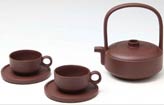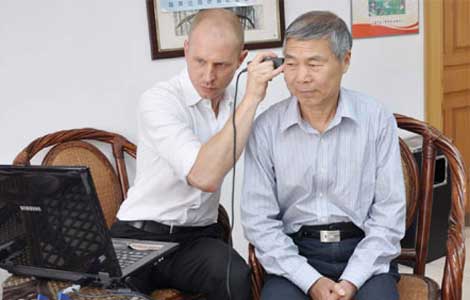Scientist faces questions over credentials for honor
Updated: 2011-08-26 14:03
By Cheng Yingqi (China Daily European Weekly)
Accusations of cheating are threatening to prevent a scientist famous for growing something resembling a human ear on the back of a mouse from attaining one of the highest honors for Chinese scientists.
|
 A mouse with what looks like a human ear on its back. The scientist involved in the experiments has been acused of fraud and rejected by the Chinese Academy of Engineering. [Provided to China Daily] |
Cao Yilin, a plastic surgeon, is a candidate to be an academician in the Chinese Academy of Engineering for his work to produce a Vacanti mouse - a laboratory mouse sprouting what appears to be a human ear from its back.
He was nominated to be an academician on May 25.
About a month later, his former colleagues accused him of cheating in an article appearing in Oriental Outlook magazine. Cao was refused as an academician candidate on Aug 17.
China Daily could not reach Cao for comment.
In 1997, after studying for six years in the United States, Cao published research on his attempts to grow "human ears" on the backs of mice. His seemingly successful results kindled hope in the prospect of producing artificial organs. Cao later returned to China to continue his studies at Shanghai Jiao Tong University's school of medicine.
Cao's work in plastic surgery was successful enough to give him the reputation of being an expert in that specialty. Then came the accusations of cheating, which appeared both in the magazine article and on the Internet.
Cao's critics say he had wasted 300 million yuan (32.5 million euros) in his fraudulent attempts to get mice to grow human ears. They say the ears he actually did produce were made from cartilage taken from cows.
However, along with critics, Cao also has defenders.
"This is purely an attempt to frame him," says Ding Xiaobang, a plastic surgeon at the Chinese Academy of Medical Sciences' plastic surgery hospital. "This has the single aim of confusing the people who are selecting academicians."
Ding and Cao together studied plastic surgery from 1999 to 2002. Ding says he helped Cao in his experiments and that he has faith in Cao's statements about his research.
"This is called tissue engineering, which means that scientists use different kinds of cells to build organs and then transplant the organs to animals or people," Ding said on Aug 24.
According to Ding, if scientists take cells that are to become an organ and inject them directly into the body of an animal, they will either die or disperse and lose the shape of what they were to become.
To avoid this, scientists had the idea of getting the cells to grow in molds made of biodegradable materials, which would disappear when the new organs formed.
"The ears on the mice were generated from cartilage cells from cows and pigs," Ding says. "From the beginning, Cao has never said he was using human cells. So there has been no cheating at all."
Ding says Cao has been trying to use similar methods for years in plastic surgery. One of the many difficulties he encountered was in making an artificial ear that was hard enough to be useful.
"Many children are born without an ear and have to undergo plastic surgery," Ding says.
To make artificial ears, surgeons now remove three ribs from a patient, carve them into an ear shape and plant the result of that work under the patient's skin.
Tissue engineering is not only being studied as a way to make organs partly composed of cartilage but also as a means of repairing or replacing bones, blood vessels, bladders and skin.
Cao's case is not the first time that the process used to select academicians has come under scrutiny. This month, Rao Yi, dean of Peking University's school of life sciences, was excluded as a nominee in the first round of voting on academician candidates.
Rao later published a blog announcing he would never seek a second nomination for the honor. His words incited a public debate over the fairness of the selection procedure.
According to the Academic Divisions of Chinese Academy of Engineering's website, academicians are selected every two years and no more than 60 get picked at a time.
Nominees to the honor are required to have made systematic and creative contribution to science and technology.
The team judging the candidates is to only listen to accusations against candidates that are made by people who provide their full names.
E-paper

Blue economy gets a lift
Coastal areas of Shandong, Zhejiang and Guangdong to spearhead sector development.
The light touch
Long way to go
Outdoor success
Specials

Star journalist remembered
Friends, colleagues attended a memorial service to pay tribute to veteran reporter Li Xing in US.

Hot pots
Tea-making treasures catch the fancy of connoisseurs as record prices brew up interest

Hear we go
Polish Audiologist helps thousands of Chinese hear for the first time.
